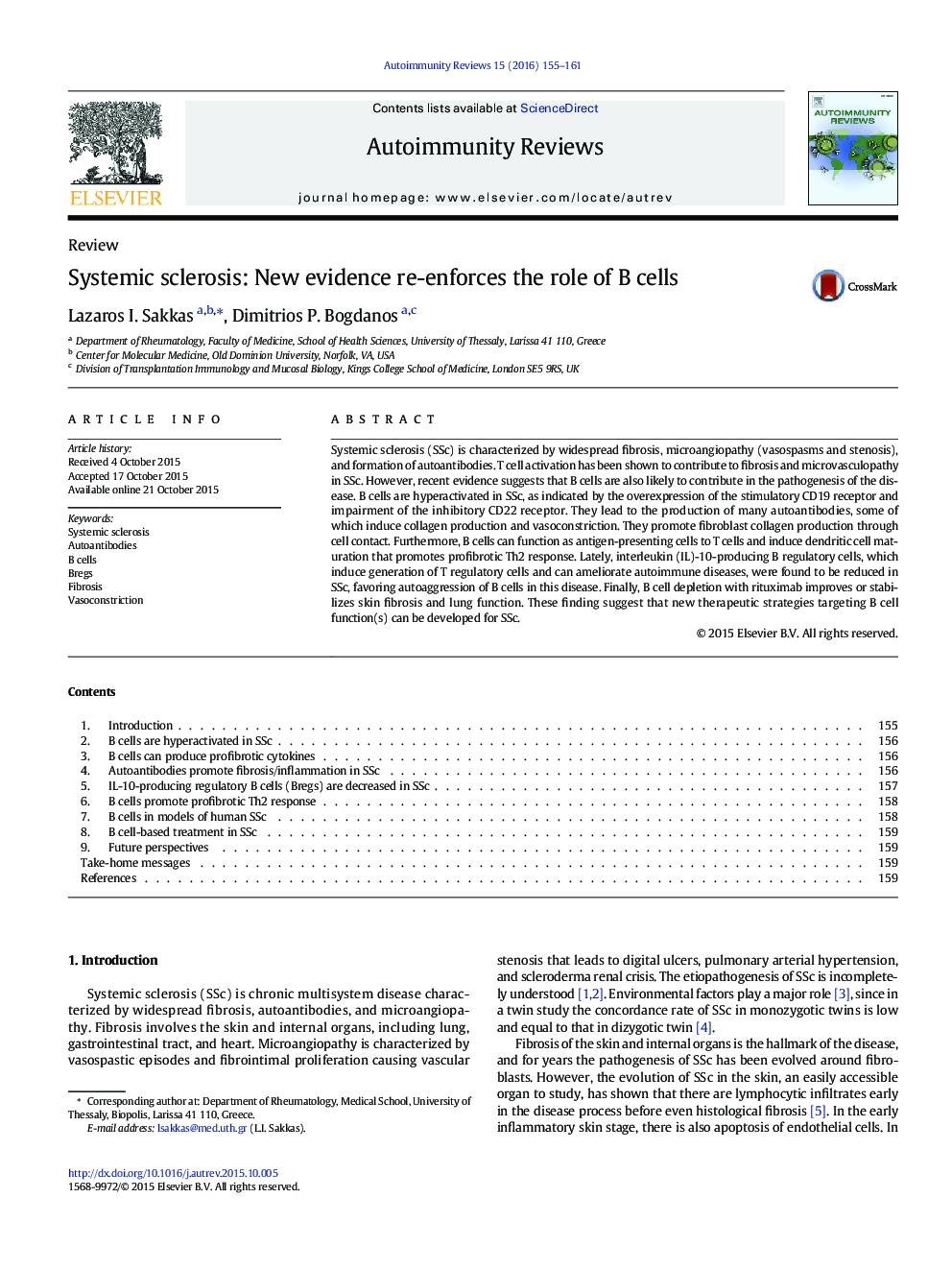| Article ID | Journal | Published Year | Pages | File Type |
|---|---|---|---|---|
| 3341326 | Autoimmunity Reviews | 2016 | 7 Pages |
•B cells are hyperactivated in systemic sclerosis.•B cells can produce profibrotic cytokines IL6 and TGFβ.•Autoantibodies can induce fibrosis and vasoconstriction.•Bregs deficiency is a feature of SSc.•Ex vivo expansion of Bregs may be a new therapeutic strategy for SSc.
Systemic sclerosis (SSc) is characterized by widespread fibrosis, microangiopathy (vasospasms and stenosis), and formation of autoantibodies. T cell activation has been shown to contribute to fibrosis and microvasculopathy in SSc. However, recent evidence suggests that B cells are also likely to contribute in the pathogenesis of the disease. B cells are hyperactivated in SSc, as indicated by the overexpression of the stimulatory CD19 receptor and impairment of the inhibitory CD22 receptor. They lead to the production of many autoantibodies, some of which induce collagen production and vasoconstriction. They promote fibroblast collagen production through cell contact. Furthermore, B cells can function as antigen-presenting cells to T cells and induce dendritic cell maturation that promotes profibrotic Th2 response. Lately, interleukin (IL)-10-producing B regulatory cells, which induce generation of T regulatory cells and can ameliorate autoimmune diseases, were found to be reduced in SSc, favoring autoaggression of B cells in this disease. Finally, B cell depletion with rituximab improves or stabilizes skin fibrosis and lung function. These finding suggest that new therapeutic strategies targeting B cell function(s) can be developed for SSc.
